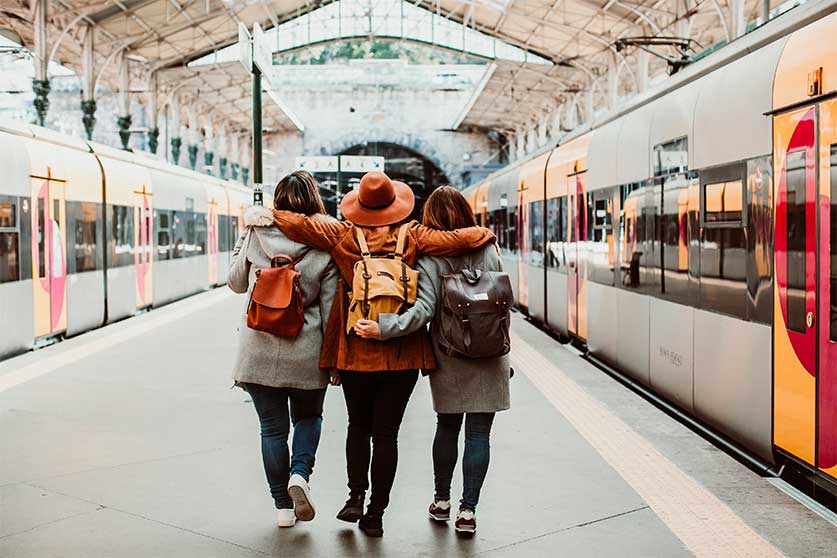When planning their dream vacation, many people envision poolside cocktails, pub crawls, and other alcohol-centric activities. Over the past few years, however, more and more travelers are choosing to stay sober.
Here’s what you should know about sober tourism and how to make the most of your booze-free getaway.
What Is Sober Tourism?
Sober tourism is a growing trend in which people go on vacation without drinking alcohol.
It first became popular among people in recovery from alcohol use disorder (also called alcohol addiction).
However, it’s now a common travel option for those who identify as “sober curious” as well. These individuals take conscious breaks from alcohol to reevaluate their relationship with it.
Popular Among Young People
Studies suggest that sober tourism is particularly attractive to young people, who drink less than older generations.
According to a 2018 report, Generation Z consumes 20% less alcohol per individual than millennials did at their age, while millennials drink less than baby boomers and Generation X.
No matter your age, alcohol-free travel brings numerous benefits.
Benefits Of Alcohol-Free Travel
When you travel without drinking alcohol, you’ll sleep better and wake up hangover-free.
Starting each day well-rested and clear-headed gives you the energy you need to embark on all your planned adventures. It also allows you to relax without unpleasant hangover symptoms such as headache and nausea.
In addition, as a sober traveler, you won’t have to worry about alcohol-induced blackouts (memory loss). That means you can relive your favorite parts of your trip again and again. You’ll also find it easier to keep track of your luggage, souvenirs, and other valuable items.
Overall, although some people might assume the opposite, staying sober can make a vacation less stressful and more fun.
Sober Tourism Tips
While sober tourism is much more popular than it once was, it still requires more planning than traditional travel experiences. In particular, you should consider these strategies:
Choose The Right Companions
Make sure your travel companions know about your plan to stay sober. If you’re recovering from addiction, don’t bring anyone who might drink or use other drugs on the trip.
For some people in recovery, even the sight or smell of drugs can trigger a relapse. Only invite friends who can fully commit themselves to a substance-free vacation.
Also, consider joining a group trip organized by a sober travel company. These companies host cruises, yoga retreats, and other drug-free journeys for people in recovery. Popular options include:
These organizations help you explore the world in a safe, supportive environment without the fear of relapse.
Embrace Natural Highs
One of the best ways to curb drug cravings is to fill your vacation with exciting activities such as ziplining, scuba diving, or whitewater rafting. These activities cause a rush of adrenaline, creating a natural high.
If you prefer something less intense, try biking, jogging, or even just walking around your destination. All forms of physical activity release endorphins, which are hormones that make you feel happy and calm.
Attend Recovery Meetings
Today, most recovery support groups offer virtual meetings. That means you can connect with like-minded people no matter where you go. You could also look for local meetings at your destination.
Some of the most popular support groups for addiction recovery include Alcoholics Anonymous, SMART Recovery, LifeRing Secular Recovery, and Women for Sobriety.
Bring Non-Alcoholic Drinks
A sober vacation can still include fun, tasty drinks. Pack ingredients for your favorite mocktails, and search for local restaurants that offer non-alcoholic options. As sober tourism becomes more popular, it’s much easier to find alcohol-free drinks all over the world.
Have An Exit Plan
Even when you plan ahead, your sober vacation could still lead to a relapse. That’s why it’s important to avoid triggering situations, such as alcohol-heavy parties. You should also craft an exit plan in case you start to crave alcohol or other drugs.
If a craving occurs, leave the situation immediately. Don’t worry about what other people will think. Your health comes first, and your sober companions will understand.
Next, relocate to a calm, quiet area, such as your hotel room or cabin. To make leaving easier, always have your own key to the room you’re staying in.
Once you relocate, take some deep breaths, and list all the reasons you chose to get sober in the first place. Contact a sober friend for support, and don’t rejoin the festivities until you feel calm again.
You can create a more personalized exit plan with the help of your therapist or support group. This plan will help give you peace of mind as you build fantastic, drug-free memories.
If you or someone you love struggles with substance abuse, please reach out to Northeast Addictions Treatment Center.
Our board-certified healthcare providers offer mental health counseling, medication-assisted treatment, and other evidence-based services to help you or your loved one stay sober.
Sources
Global News — Alcohol consumption on the decline for Gen Z, studies suggest
National Geographic — Sober tourism is a growing trend—here’s how it can transform your trip
New York Times — Hold the Tequila. The Sunrise Is All Some Travelers Need.





